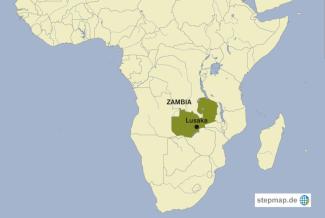Honey trade
When the bee stings

From modest beginnings, Zambia’s honey sector has grown to producing approximately 2,500 tonnes per year and employing over 30,000 people. Most of this production is exported, bringing in vital foreign currencies.
But there is a sting in the tail of this success story. Under a honey export protocol reached between Zambia and China in 2018, Mpundu Wild Honey, a Chinese-owned company based in central Zambia, was granted exclusive rights to export Zambian honey to China.
This exclusive deal has stung Zambian honey producers. Zambian beekeepers and honey traders say the deal bars them from accessing the lucrative Chinese market directly.
One of the affected local producers is Miombo Honey, which buys and processes raw organic honey and wax from bee farmers in the Miombo forests of the central Zambezian woodlands. The company sees rich market potential in the Far East. But founder Aaron Kantumoya says the exclusive rights for Mpundu tilt the scales in favour of the Chinese firm for exports not only to China but to the entire Asian market.
“What is currently happening in this sector is not fair,” Kantumoya says. “Some Chinese honey companies source our local product at below-market prices for export to China.”
Benjamin Kalima, a bee farmer in the Solwezi district of north-western Zambia, says the growing Asian demand for organic honey could help build up Zambia’s economy – if the honey trade were conducted on a freely competitive basis.
“These briefcase buyers, especially those from China, always exploit us,” Kalima says. “They come here and offer us a very low market price of 70 Kwacha (about € 3.3) per 2.5-litre container of honey, and we have no choice but to sell to them at this price because we need income for our families.”
A 2.5 litre container of honey weighs 3.6 kilogrammes, so the price that Kalima cites translates into approximately € 0.91 per kilogramme. In contrast, the wholesale price on the Zambian market ranges between 50 and 80 Kwacha (€ 2.3-€ 3.7) per kilogramme.
On international markets, honey trades at wholesale prices of about € 4.7 per kilogramme, according to the National Honey Board, a US-based industry group. The difference between the local Zambian and the international price shows how lucrative exports could be for Zambian honey producers.
The firm that has exclusive export rights to the Chinese market sees the market potential as well. Zhang Zhanping, director of Mpundu Wild Honey, says his company plans to increase production from the current annual level of 3.4 tonnes by adding new beekeepers to its supply network.
“The export of Zambian honey to China will improve the economies of both countries through employment creation and international trade,” he says.
Derrick Silimina is a freelance journalist based in Lusaka. He focuses on Zambian agriculture and sustainability issues.
derricksilimina@gmail.com












